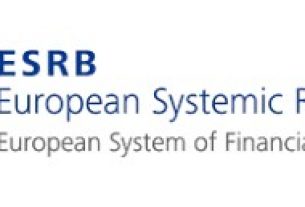Hungary is turning to the European Commission with a request that the EU cover at least part of the costs of the country’s border fence, Gergely Gulyás, the prime minister’s chief of staff, said at a government press briefing.
Migration pressure on Europe’s borders is growing and is expected to keep increasing, he said. “It would be nice if the European Commission switched from supporting migration to supporting the protection of external borders,” he said, adding that the pressure of migration is growing as a result of the situation in Afghanistan and events at the Belarus border. The number of illegal border crossing attempts is currently a daily average of 319 as against 97 in the same period of last year, he noted.
Gulyás said the EC was unable to grasp “the right answer” to the problem, but a growing number of people, he added, were starting to realise it. He cited European People’s Party group leader Manfred Weber who, Gulyás said, had clearly voiced support for the construction of physical borders and called on the EU to contribute to border protection.
Asked about EU Home Affairs Commissioner Ylva Johansson’s recent comments supporting migration, Gulyás said every country should decide for itself whether it had a need for migrants. “Hungary has always been tolerant and doesn’t think it should tell other member states how they should decide on the issue of migration,” he said. Gulyás noted that Hungarians, in a referendum in 2016, had rejected migration “by a majority not seen since 1989”.
On another subject, Gulyás said the Hungarian presidency of the Council of Europe could be considered a success, noting its top priority of drawing attention to the situation of national minorities. He said that whereas Europe today devoted close attention to the rights of “all kinds of minorities”, national minorities did not get the attention they deserved.
Asked about the EU post-pandemic recovery funds, Gulyás said Hungary was prepared to reach an agreement on them but was expecting Brussels to try to interfere in the 2022 election. “And then the agreement on the recovery funds could be delayed until the election,” he said. Hungary has been pre-financing EU projects for the last eight years, Gulyás said, adding that the question was when those monies would be accounted for by the EU.
Commenting on the European Commission’s decision to select news portal 444.hu to join a project to help fight disinformation in Hungary, Gulyás said the EC’s “interference in domestic political affairs” could be considered a breach of the EU treaties. “Any form of foreign meddling in a national election is dishonest, especially if it is done by an EU institution which, according to the treaties, doesn’t involve itself in partisan politics,” he added.
On another topic, Gulyás said the government was keeping an eye on petrol prices and its effects on households, and was looking at ways to bring them down. Any intervention, however, would only happen based on the economic effects of the price increase rather than on whether the price crosses a certain threshold, he added.
Meanwhile, he said Hungary’s gas reservoirs were filled to 77% of their total capacity, which he said was enough to cater to the country’s needs throughout the winter.
Gulyás also said talks on the minimum wage between the government, employers and unions were going well, but employers were demanding tax cuts. This will primarily come in the form of a reduction to the social contribution tax, but two other taxes, including the business tax, could also be reduced, he added.
Asked about the state’s plans to repurchase Liszt Ferenc International Airport, Gulyás said the deal could be concluded in a matter of months, adding that the airport required new upgrades.
Asked if the government planned to intervene on the fertilizer market to stabilise prices, Gulyás said they were aware that the sector was in need of help and the government was looking into the matter.
Meanwhile, asked about the “tens of thousands of people” moving out of Budapest, Gulyás said the city’s mayor, Gergely Karácsony, had campaigned on introducing housing subsidies but had not kept his promise, while the capital, he added, was far more rubbish-strewn than two years ago and was beset by traffic jams and homelessness problems.
On the subject of the MOL-INA case in connection with a conviction in Croatia of Zsolt Hernádi, MOL’S CEO, and the Croatian Supreme Court’s decision to uphold the conviction, Gulyás, citing the international arbitration court, said the case had not been conducted according to the rule of law, while the same court had also ruled that the MOL-INA contract had complied with the law. Hungary’s legal system found that it would not be justified to extradite Hernádi to Croatia, he added.
hungarymatters.hu
pixabay

















